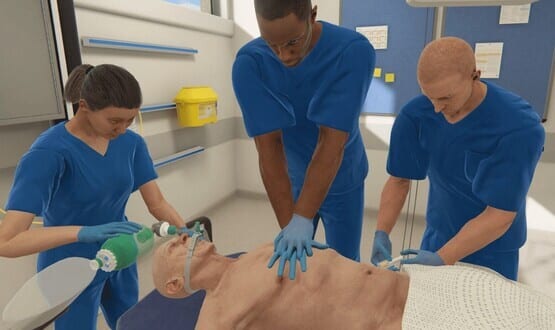Digital ready workforce: When the medium is the message
- 21 November 2017

You may have read here last week that an online workshop will be launched on Wednesday 22 November as part of National Information Board’s Building a Digital Ready Workforce programme.
In this second article of the series, Pete Thomond and Jon Hoeksma explain the idea behind it, how will it be delivered and why it’s an opportunity for informatics professionals to ensure their voices are heard.
When I ask Pete Thomond why the online workshop is important, he flips the question around to ask what would happen if they don’t run it.
The founder of Clever Together – the crowdsourcing firm conducting the workshop – then goes on to answer his own question: “If we don’t do the online workshop, there will be a series of closed-room workshops with typical people raising their hands and decisions would be made about the allocation of this [£6 million] funding. We will miss out on great deal of opportunity and ideas.”
He, of course, has a point. And the National Information Board, the agency behind Building a Digital Ready Workforce programme, are well aware of that.
Which is why Health Education England is launching this listening exercise to connect with informaticians working in health and social care. The aim is to gather their views on digital strategy and understand their training priorities and developmental needs.
Defining informatician
Jon Hoeksma, editor of Digital Health, says the exercise, which will run for about three weeks, is unique in its attempt to engage and bring together different tribes and professional groups within information and technology sector in health and social care. However, he isn’t a fan of the word ‘informatician.’
“Many people don’t identify themselves as an informatician at all – it’s term that is quite specialist. Of course, CCIOs and CIOs are hugely important, and we definitely want to hear from them. But they are tip of the iceberg. We also want to hear from the members of their teams, other people in their organisations, people using information for tiny part of their jobs or those using it full-time as key part of their jobs.
“It could be that you are a medical records clerk, or you look after servers in your organisation, or maybe you’re a statistician crunching numbers coming out an electronic patient records system – these are all informaticians and this kind of broader, inclusive view hasn’t always been taken.”
The medium is the message
While hearing the thoughts of diverse range of individuals is a central tenet of the online workshop and the campaign, another important aspect is the medium itself – democratising the process by removing the restrictions of space and time.
Thomond believes cyberspace is a great way of utilising the potential of a “geographically-dispersed, time-constrained network of individuals” whose collective intelligence can provide alternative ideas and a fresh perspective on how to build a digital ready workforce of the future.
For Hoeksma, the fact that Health Education England is asking these questions is in itself a worthwhile exercise. “I’m not aware that something like this has been attempted previously. And using digital channels and social media seems like the right way to do it. It’s a case of medium being part of the message.”
Even though media theorist Marshall McLuhan didn’t coin the now-famous phrase ‘the medium is the message’ keeping Internet in mind, it is quite an apt way to describe the digital zeitgeist of our times.
How will it work
But what can we expect from this online workshop and how will be it work?
When people join the workshop [from 22 November onwards], they will be presented with few questions. Based on participants’ answers and the data collected, Clever Together will then generate insight on their priorities, developmental needs, training requirements and what are the barriers and enablers in taking the digital agenda forward.
The posts will be kept anonymous though everyone can see everybody else’s ideas, explains Thomond. “They can vote, share, like, dislike, agree with those ideas. What we will start seeing is the crowd – by sharing ideas, comments and votes – brings to the top what they feel collectively is most important part of the agenda.”
This data or conversation is then subjected to analysis to reveal themes and action points – turning input into insight. After the consultation period has ended, and based on their analysis, Clever Together experts will provide a series of local, regional or system-wide recommendations on how to improve the knowledge and digital skillset of England’s health and social care workforce so they can deliver safer and better care.
Ensuring your voices are heard
“I come to this with an open mind. I’m genuinely very interested to know people’s views. I don’t know what they will say but I’m not the only one,” says Hoeksma.
He thinks it is a real opportunity for individuals to make central bodies aware of their priorities and ensure they are heard in the process. “If people don’t take part now, they forgo the right to complain later that they don’t got the kind of support they need.
“Can we promise you’ll get what you ask for? No, we can’t. But what we can guarantee is that unless you take part your voice will definitely not be heard. We hope the workshop does well. It will help us reach the parts of health informatics profession that other engagements can’t reach.”
You can register now for the online workshop, which launches on Wednesday 22 November. Keep an eye on Digital Health for ongoing coverage.




